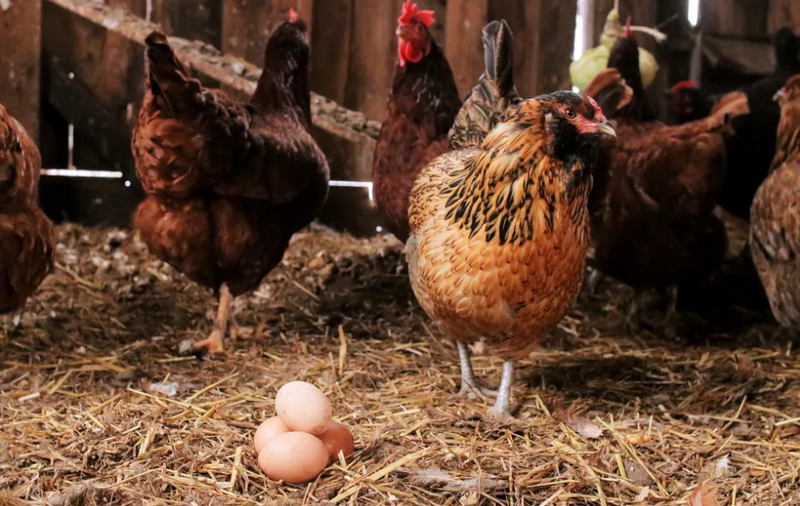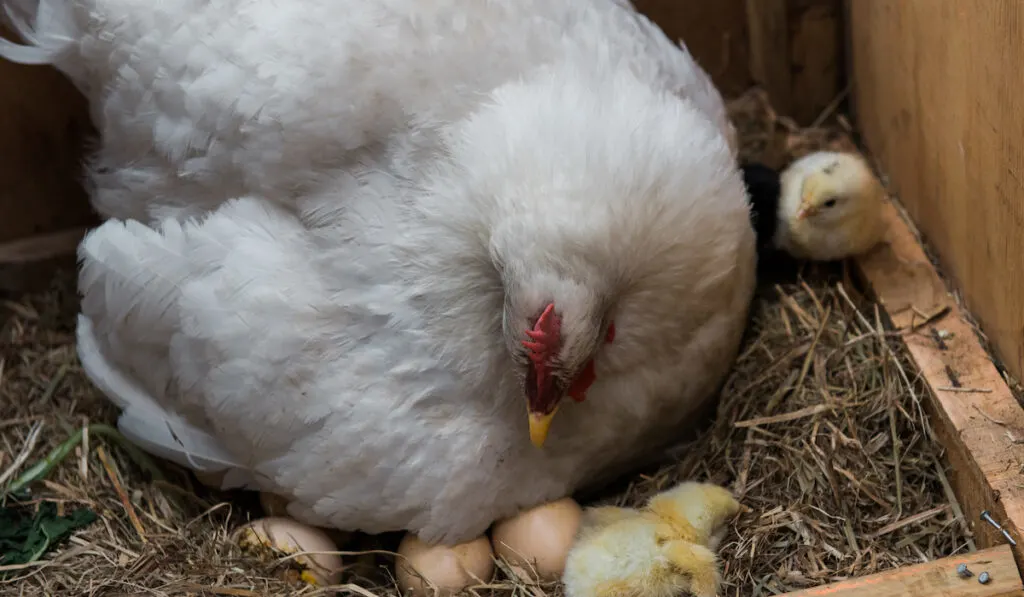Do Hens Produce Eggs Without A Rooster? A Comprehensive Guide
Hey there, egg enthusiasts! Let’s dive straight into the heart of the matter: do hens produce eggs without a rooster? If you’ve ever wondered about this, you’re not alone. This question has been buzzing around backyard chicken coops and agricultural circles for ages. So, buckle up because we’re about to break it down for you in a way that’s easy to understand and packed with useful info. Whether you’re a seasoned chicken keeper or just curious, this guide is here to clear up the confusion once and for all.
Picture this: You wake up one morning, head to your backyard coop, and find a fresh egg waiting for you. But wait—there’s no rooster in sight. How is this possible? Spoiler alert: It’s totally normal! Female chickens, or hens, are biologically wired to lay eggs, and they don’t need a rooster to do so. But there’s more to the story than just that. Stick around, and we’ll unpack everything you need to know.
Before we dive deeper, let’s set the stage. This guide isn’t just about answering the question—it’s about giving you the full scoop on how eggs are made, the role of roosters, and what you can expect if you’re raising hens. By the end of this, you’ll be an expert on all things egg-related. Now, let’s get started!
Read also:Sergio Garcia Parents A Deep Dive Into Their Influence And Legacy
Table of Contents:
- The Biological Process Behind Egg Laying
- What’s the Role of a Rooster in Egg Production?
- Fertile vs. Unfertile Eggs: What’s the Difference?
- How Often Do Hens Lay Eggs Without a Rooster?
- How Different Breeds Impact Egg Laying
- Diet and Health: Key Factors in Egg Production
- Environmental Factors That Influence Egg Laying
- Common Myths About Egg Production Debunked
- Tips for Raising Hens Without a Rooster
- Conclusion: What You Should Know
The Biological Process Behind Egg Laying
Alright, let’s get down to the nitty-gritty. Hens are natural egg machines, and their bodies are designed to produce eggs regularly. Here’s how it works: Inside a hen’s body, there’s an ovary that releases a yolk every 24-26 hours. This yolk travels through the oviduct, where different layers are added—like the egg white, shell membrane, and finally the shell itself. Boom! You’ve got yourself an egg.
But wait, where’s the rooster in all this? Well, here’s the deal: The process of egg production doesn’t require a rooster. A hen will lay eggs regardless of whether a rooster is present or not. However, if a rooster is around and mates with the hen, the egg can become fertilized, meaning it has the potential to develop into a chick. But if there’s no rooster, the egg remains unfertilized and is safe to eat.
So, in short, hens lay eggs as part of their natural reproductive cycle. It’s like their version of menstruation, but way cooler because… eggs! And speaking of cool stuff, let’s move on to the next section.
What’s the Role of a Rooster in Egg Production?
Roosters are often misunderstood. Some people think they’re essential for egg production, but that’s not the case. Roosters play a different role entirely—they’re more like the protectors of the flock. They keep an eye out for predators, sound the alarm when danger approaches, and ensure the hens are safe. Plus, they’re the ones who make sure the flock stays in line with their pecking order.
Do Roosters Affect Egg Quantity?
Not really. The presence of a rooster doesn’t increase the number of eggs a hen lays. What a rooster does affect is whether the eggs are fertilized. If you’re raising chickens for eggs and don’t want fertilized ones, you don’t need a rooster. Simple as that.
Read also:Who Is Eric Graise Unveiling The Life And Achievements Of A Remarkable Personality
However, if you’re into breeding chickens or want to hatch chicks, having a rooster is crucial. They’re the ones who provide the sperm needed to fertilize the eggs. But for most backyard chicken keepers, a rooster isn’t necessary unless you have specific goals in mind.
Fertile vs. Unfertile Eggs: What’s the Difference?
This is where things get interesting. When you’re shopping for eggs at the grocery store, you’re probably buying unfertilized eggs. These are the ones laid by hens that haven’t mated with a rooster. On the other hand, fertile eggs are laid by hens that have mated with a rooster. The key difference is that fertile eggs have the potential to develop into chicks if they’re incubated properly.
Can You Eat Fertile Eggs?
Absolutely! Fertile eggs are perfectly safe to eat. In fact, many people prefer them because they believe they have a richer flavor and more nutrients. However, if you’re not into the idea of eating something that could become a chick, don’t worry—most fertile eggs sold in stores are refrigerated, which stops the embryo from developing.
So, whether you choose fertile or unfertilized eggs, you’re good to go. Just remember, if you’re buying from a local farmer, it’s always a good idea to ask if the eggs are fertilized or not.
How Often Do Hens Lay Eggs Without a Rooster?
Now, let’s talk numbers. On average, a healthy hen can lay about 5-7 eggs per week. However, this number can vary depending on several factors, like the hen’s age, breed, diet, and living conditions. Younger hens, or pullets, tend to lay more frequently than older hens. And some breeds are just naturally better egg layers than others.
Here’s a fun fact: A hen can lay over 300 eggs in a year if conditions are right. But again, this depends on how well she’s taken care of. Proper nutrition, clean water, and a stress-free environment are key to keeping your hens laying consistently.
What Happens When a Hen Stops Laying Eggs?
There are a few reasons why a hen might stop laying eggs. Aging is one of them—older hens naturally produce fewer eggs as they get older. Molting, which is when a hen sheds her feathers and grows new ones, can also pause egg production temporarily. Stress, illness, or poor nutrition can also affect how many eggs a hen lays. If you notice a sudden drop in egg production, it might be time to check in on your flock’s health.
How Different Breeds Impact Egg Laying
Not all hens are created equal when it comes to egg production. Some breeds are known for their high egg output, while others focus more on meat production or being great mothers. Here are a few breeds that are top performers in the egg-laying department:
- White Leghorns: These are the rockstars of the chicken world when it comes to egg production. They can lay up to 300 eggs per year!
- Golden Comets: Another high-producing breed, Golden Comets are known for their consistent egg-laying abilities.
- Australorps: These beauties not only lay a lot of eggs but also have a friendly temperament, making them a great choice for backyard flocks.
- Rhode Island Reds: While they’re dual-purpose birds (good for both eggs and meat), Rhode Island Reds are still solid egg layers.
Choosing the right breed for your needs is important. If you’re looking for maximum egg production, stick with breeds that are known for their laying abilities. But if you’re more interested in having a well-rounded flock, consider mixing in some other breeds for variety.
Diet and Health: Key Factors in Egg Production
Just like humans, chickens need proper nutrition to stay healthy and perform at their best. A well-balanced diet is essential for keeping your hens laying eggs regularly. Here are a few key components to focus on:
- Protein: Hens need plenty of protein to produce eggs. Look for feed that’s specifically formulated for laying hens.
- Calcium: Calcium is crucial for strong eggshells. You can supplement your hens’ diet with crushed oyster shells or eggshells to ensure they’re getting enough.
- Water: Fresh, clean water is a must. Dehydration can lead to a drop in egg production, so make sure your hens always have access to water.
- Vitamins and Minerals: A balanced diet should include all the essential vitamins and minerals your hens need to stay healthy.
Health is another big factor. Regular check-ups and keeping your coop clean can help prevent diseases and parasites that might affect egg production. And don’t forget to watch out for signs of stress or illness, like lethargy or changes in appetite.
Environmental Factors That Influence Egg Laying
The environment your hens live in can have a big impact on how many eggs they lay. Here are a few things to consider:
- Lighting: Hens need about 14-16 hours of light per day to lay eggs consistently. If you live in an area with shorter daylight hours during the winter, consider using artificial lighting in your coop.
- Temperature: Extreme heat or cold can affect egg production. Make sure your coop is well-ventilated and insulated to keep your hens comfortable year-round.
- Space: Overcrowding can lead to stress, which can reduce egg production. Give your hens enough space to move around and feel at ease.
Creating a stress-free environment is key to keeping your hens happy and productive. And happy hens lay more eggs, so it’s a win-win situation.
Common Myths About Egg Production Debunked
There are a lot of myths floating around about egg production, and it’s time to set the record straight. Here are a few common ones:
- Myth: Hens need a rooster to lay eggs. Nope! As we’ve already discussed, hens will lay eggs whether or not a rooster is present.
- Myth: All eggs are created equal. Not true! The quality of an egg depends on the hen’s diet, health, and living conditions. Free-range eggs, for example, often have richer flavors and more nutrients.
- Myth: Hens lay eggs every day. While some hens can lay almost daily, most lay about 5-7 eggs per week. It’s important to manage expectations and understand that egg production can vary.
By separating fact from fiction, you’ll have a better understanding of what to expect from your flock.
Tips for Raising Hens Without a Rooster
If you’re thinking about raising hens without a rooster, here are a few tips to help you get started:
- Choose the right breed for your needs.
- Provide a balanced diet and fresh water.
- Ensure your coop is clean, well-ventilated, and predator-proof.
- Monitor your hens’ health regularly and address any issues promptly.
- Consider using artificial lighting during the winter months to maintain egg production.
Raising hens without a rooster can be a rewarding experience. You’ll get fresh eggs without the hassle of managing a rooster, and your flock will still be happy and healthy.
Conclusion: What You Should Know
So, there you have it—a comprehensive guide to whether hens produce eggs without a rooster. The short answer is yes, they absolutely do! Hens are natural egg-laying machines, and they don’t need a rooster to do their thing. However, if you’re interested in breeding or h


